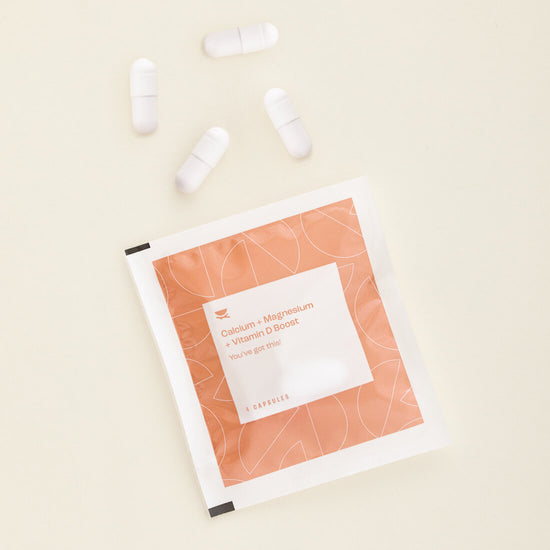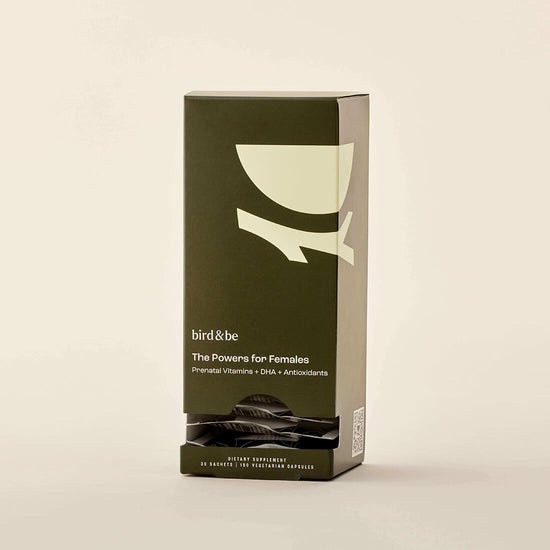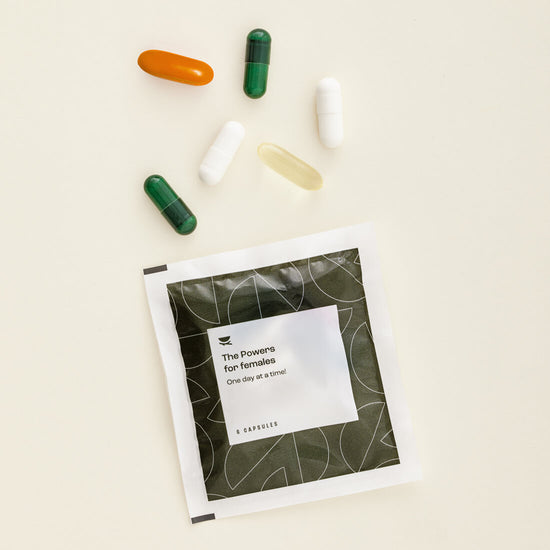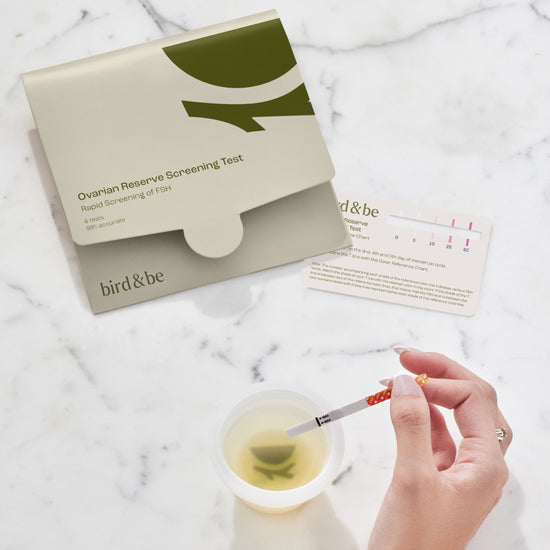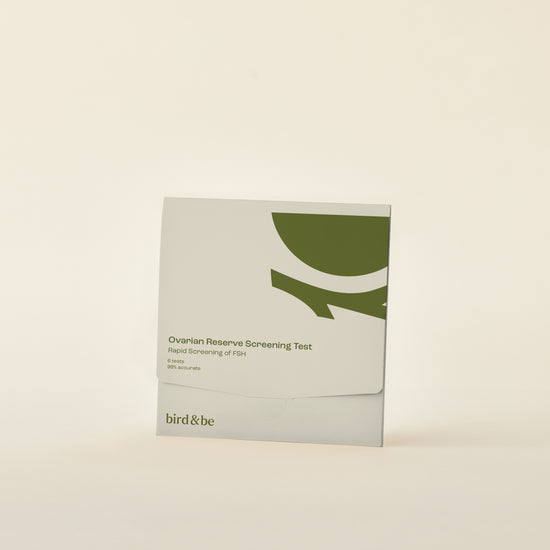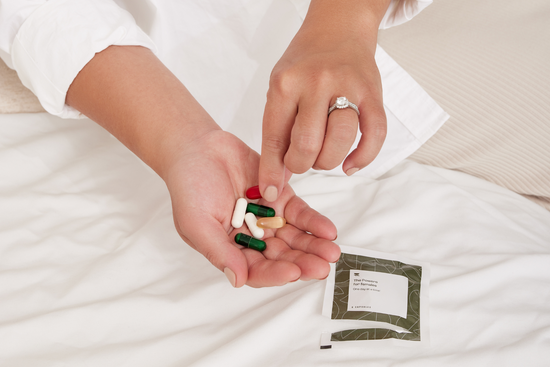If you’re female, your fertility journey begins with your eggs, and the two things you’ll likely hear a lot about if you’re trying to conceive are egg quantity (how many you have) and egg quality (how healthy they are). (You can read more about egg quantity vs. egg quality here.) While you can’t change the number of eggs you have, you can improve your egg quality and give your eggs a healthier environment to thrive in. Read on to learn more about what a healthy egg is, why it’s important, and what you can do to make sure your egg quality is supported while you try to conceive.
What is a good-quality egg?
The quality of your eggs refers to how normal, healthy, and likely they are to result in a successful pregnancy. Your eggs carry chromosomes, which are half of the genetic material for an embryo (the other half comes from healthy sperm). A normal egg will have the right number of chromosomes in the proper order. When a chromosomally normal egg is fertilized, it’s more likely to develop into an embryo and implant in the uterus. On the flip side, abnormal eggs are more difficult to fertilize and even when fertilization does happen, are more likely to end in miscarriage. You can’t change the chromosomes of your eggs to make them normal. But you can create a healthy environment for eggs to implant, reduce any stress that can damage healthy eggs, and make sure your body is ready to give a healthy egg its best shot by getting the proper nutrient support.
Signs of low egg quality
Low egg quality significantly affects your chances of having a successful pregnancy. But the quality of your eggs isn’t easy to measure. In fact, we don’t yet have a test that can tell us—before the embryo forms—how healthy your eggs are. Instead, we can assume that a successful pregnancy that resulted in a healthy baby came from a good-quality egg (and good-quality sperm). But, when you experience infertility or repeated miscarriage, that can indicate a problem with egg quality.
What can affect egg quality?
-
Age: As you get older the number and quality of your eggs reduces. And, unfortunately, there’s no way to stop it. It’s why doctors consider age the main factor for assessing egg quality.
-
Genetics: Your genes can also influence the quality of your eggs. Genetic conditions that affect egg quality (like sickle cell disease, Tay Sachs disease, or Canavan disease) can reduce your chances of having healthy eggs.
-
General health: Conditions like endometriosis and autoimmune disease can impact your egg quality and affect your ability to get pregnant and high (and prolonged) levels of stress can have an effect as well.
-
Environment: Exposure to pollutants, pesticides, and heavy metals can worsen your egg quality over time.
-
Lifestyle: Lifestyle choices (like smoking, excessive drinking, and overconsumption of caffeine) can negatively affect your egg quality.
-
Diet: Your food choices affect your egg quality. Incorporating fertility-friendly foods into your diet can help, while supplementing with a prenatal pill can cover any gaps.
Supplements to improve egg quality
In addition to eating healthy, certain supplements and vitamins can boost your egg quality and improve your chances of conceiving when taken consistently, whether you’re pursuing IVF or hoping to conceive spontaneously.
-
CoQ10: This enzyme and antioxidant helps to protect your eggs, and research shows that Co10Q improves egg energy production. Eggs that are higher in CoQ10 are more viable for conception and have improved chances of conceiving successfully. As an antioxidant, CoQ10 also protects your eggs from free radicals (those pesky unstable atoms that damage cells as we age or are exposed to environmental stressors). Look for a supplement with 200 to 600 mg and take it daily to get the full benefits of this antioxidant.
-
NAC: N-acetylcysteine (NAC) is an antioxidant that improves egg quality and increases the chances of successful fertilization by protecting against oxidative stress. Bonus, it also can help increase the quality of cervical mucus (which helps sperm do its job, too). Doses for fertility can range from 600 to 1,000 mg.
-
Omega-3s: Available as DHA and EPA, Omega-3 boosts your fertility by supporting the production of helpful hormones, lowering inflammation, and increasing the odds of successful fertilization. Taking 200 to 300 mg of DHA specifically has a positive influence on egg quality and taking a supplement also ensures you get prepped for pregnancy when your body’s demand for Omega-3s goes up.
-
Resveratrol: This polyphenol is a micronutrient and antioxidant that protects cells from oxidative stress while improving heart function and longevity. It’s also a great supplement for those with PCOS or endometriosis. Look for a supplement with 60 to 120 mg of Trans-Resveratrol (the active form of the nutrient).
-
Supportive vitamins: Vitamin A supports successful fertilization, and B Vitamins (Folate, B6, B12) are linked with improved ovary function when trying to conceive. Getting enough Vitamin D is linked with successful conception, while Vitamin E boosts fertility, fights oxidative stress, and improves pregnancy chances.
You’ll find all of these nutrients (and more!) in The Power Prenatal for Females, a preconception powerhouse formulated by fertility doctors to get your eggs in tip-top shape. To really max out your egg potential, add an additional CoQ10 boost.
Other ways you can boost your egg quality include:
-
Eat a healthy diet with plenty of natural foods such as whole grain, lean meat, vegetables, and fruits—especially ones included in the Mediterranean diet. Avoid red and processed meats, trans fats, and sugar.
-
Stay hydrated. Aim for at least 2,300 mLs of water a day. You can infuse your water with green tea, herbs like mint, or fruits like lemons.
-
Quit smoking (or any tobacco use) and reduce (or eliminate) the amount of alcohol in your diet. Stay away from caffeine too (yes, less coffee).
-
Manage stress by practicing self-care, connecting with others, and avoiding stressful environments.


